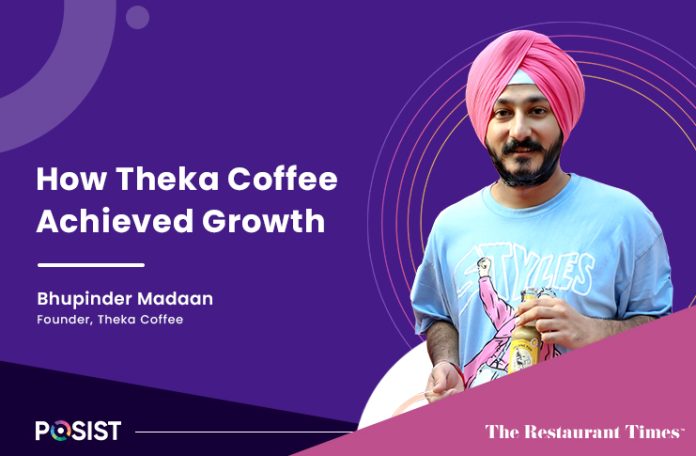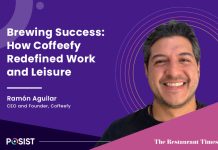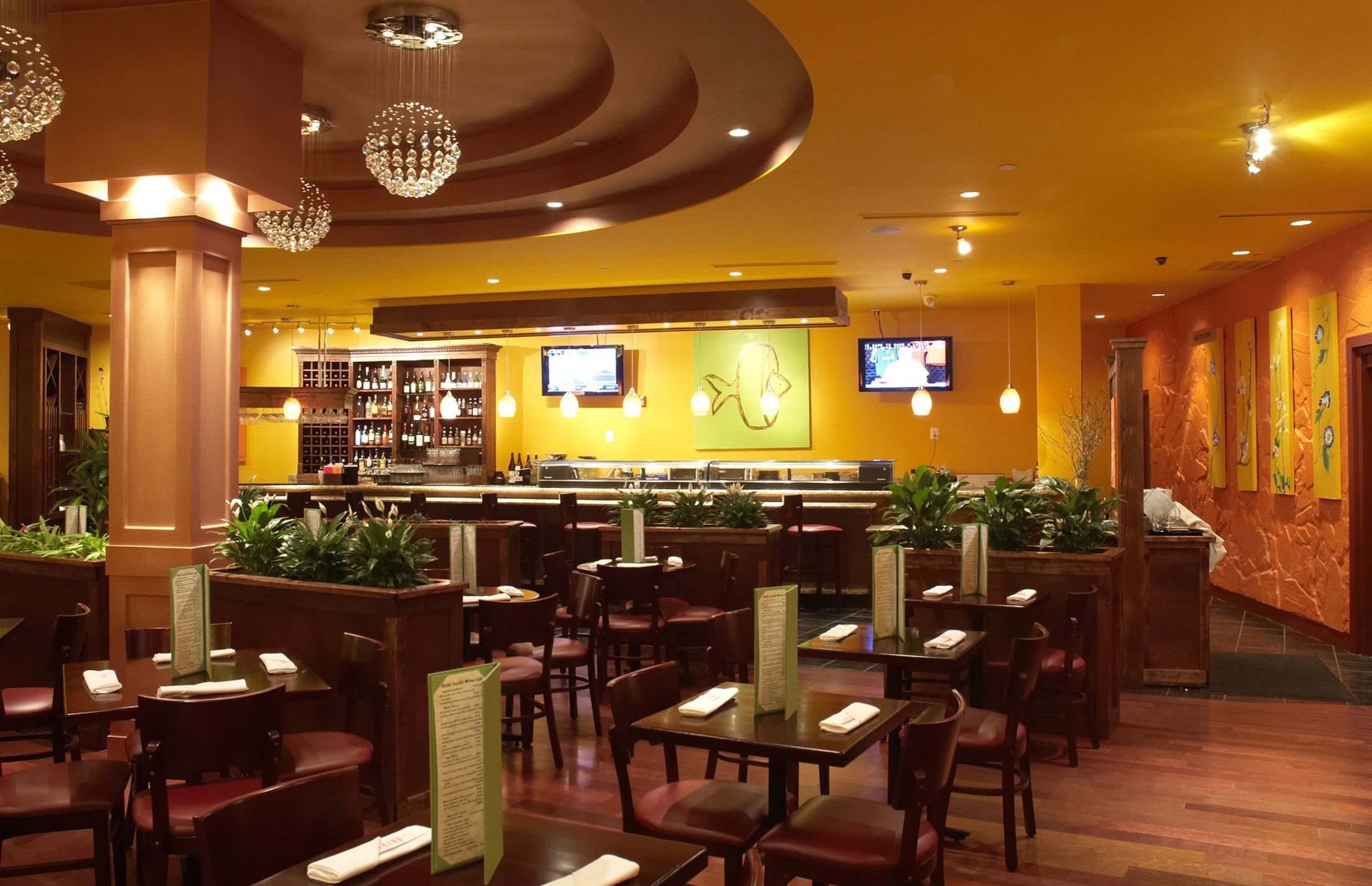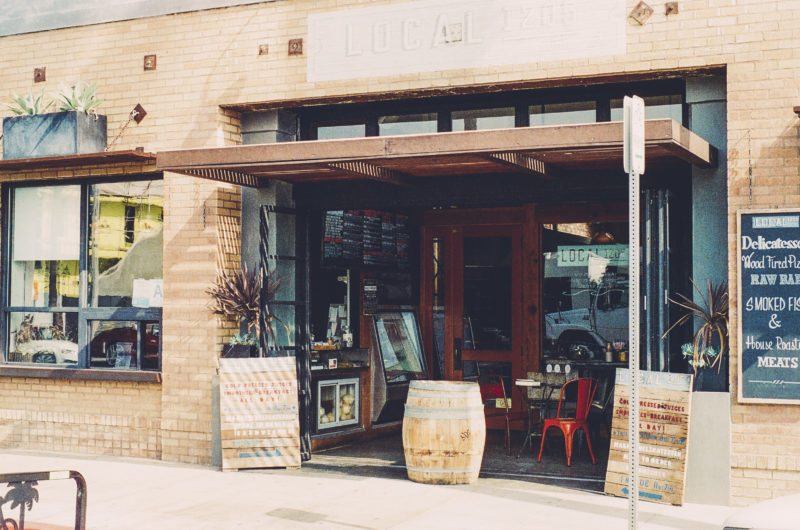In 2017, coffee culture was booming in India, but only for a wealthy few. Middle-class folks wanted in on the action, but premium brands like Starbucks were too pricey and kept them away. Bhupinder Madaan, a young serial entrepreneur, saw this gap during a visit to a bar in Delhi and got to work.
He launched Theka Coffee to bring specialty coffee experiences to everyone, starting with quirky names like Palang Tod and Coffee ki Jawani, sold in beer bottles. The fresh, 100% Arabica coffee and unique roasting methods made Theka a hit among the millennials. Today, Theka has over 55 franchises across India.
Bhupinder’s Theka Coffee pitch got shortlisted to feature on Shark Tank India. It got him plenty of attention, even if he didn’t get the funding. Since then, he’s received partnership offers from top brands like Microsoft and Reliance. Theka is now a go-to hangout spot for coffee lovers.
In Conversation with Bhupinder Madan, Founder of Theka Coffee
Our Shark Tank hero, Bhupinder Madaan, has a combined experience of 15+ years in running businesses. Their most substantial experience is in the food and beverage industry, where his acumen for creating processes, assessing the most viable ideas, and skills to execute them perfectly have enabled him to run 100+ food outlets successfully. In this episode of F&B Talks, Bhupinder Madaan takes us through his entrepreneurial journey, his successes and challenges with Theka Coffee, business insights, and much more.
TRT– What inspired you to start Theka Coffee? How did the idea come up, and what was the source of inspiration for the novel concept to serve freshly brewed coffee in glass bottles?
Bhupinder Madan – The inspiration is more based on my learnings from my past. As you mentioned, I’ve done a lot of food industry businesses, but I could not scale them up. That’s one thing that inspired me that I wanted to create a brand that can scale up in this.
Second is if you talk about brand ideologies, packaging, and all those things, that actually the inspiration came because I was having a beer, I remember I was sitting at SOCIAL, and I was having a beer over there. When I was having a beer I realized that one sitting next to me had ordered coffee which came in a soggy glass and I found it very boring and unappealing. So I was laughing, that I’m holding something very cool, and you have something very soggy in your hand. That’s the exact point I thought about that, I’ll give cold coffees in a very cool manner, because for me personally, I love holding those beer bottles. And truth be told, for me the fun part is holding that beer bottle rather than actually having to drink it. And that’s where the inspiration came from.
Ultimately, I think because I love to be perfect in whatever I’m doing. I made sure that I developed the product pretty well, and then served it in the beer bottle. Earlier, I just wanted to sell any kind of coffee, but then, when I got into it deep, I understood that there’s a huge gap in premix, powder coffee, and freshly brewed coffee, so that’s when we decided to go completely deep into it and sell one of the best coffees across India.
Basically, the inspiration was just to ensure that people are having coffee in a cool manner, because coffees are still very boring. If you go to any cafe, you will always get cappuccinos and lattes, there is nothing Indian about it. All the cafes have exactly the same menu. You go to any of the local chains which are selling you coffee, they serve it in that glass which is something I personally don’t like to hold ultimately. So the real inspiration was to ensure that we make something, we make coffee drinking a cool habit, and you should enjoy holding that particular drink in your hand. Also the ordering process. So when you order a cappuccino latte you don’t laugh at it but when you order a Palang Tod you’re laughing about it, so that’s what inspired us to bring some change in here, in the full coffee industry.
TRT– ‘Palang Tod’ or ‘Coffee ki Jawani’ and ‘Next Level’, are real attention grabbers, how did you get these unique names transformed into actually a coffee name?
Bhupinder Madan– So these are actually the names that I used to use in my local language and life. So ‘Next Level’ is something that I still use all the time like “you are such a next level person”, and “what a next level business you have created!” All these are actually the words that I use in my life. But then we connected it with our coffee.
So what happens is Palang Tod coffee is a very dark-roasted coffee bean. It’s actually a very strong coffee. When you talk about Next Level coffee it’s a level above normal roast of coffee. That’s why it’s next level and Coffee ki Jawani is a light roast of coffee, which is a Javan roast of coffee. So that’s why it’s named Coffee ki Jawani basically.
So we connected our slang with this and I personally think it did not take a lot of time because it’s my personality, the brand. If you know your personality well, it takes very less time for you to write down your menus and all the ideas and branding.
TRT– Coming this far and the journey of Theka would not have been easy. What were some of the biggest challenges you faced in your early phase, and how did you overcome them?
Bhupinder Madan– I think the biggest challenge I faced was self-learning because I think every moment when you’re trying to work in your daily life because you have to achieve your goals, you have to complete your task, you always forget to learn, and you don’t get time to research on new things. So I personally think that you should keep some time for yourself and your research on your goals, and you try to make sure that you’re gaining more knowledge through people, by exposure, by knowledge, through Instagram, YouTube, anyway. But ultimately, if you don’t keep doing that as I was not doing it, I was failing. That’s what I realized because everything is evolving very soon, especially in the food industry, things evolve very quickly.
Other than that I always feel that the challenge that I faced was I’m not good with finances. I was never good with finances, and financial knowledge is something that people lack ultimately when they are doing food industry businesses, especially when they are scaling up. So I made sure that I learned that pretty well. So now I’m pretty good with my numbers, I know how my business is operating. I know every part of my business from a financial point of view. So this was my major challenge. Rest all, I think, is very easy to solve. These two challenges are something that people don’t even know these are important parts of your business to be taken care of in the initial days especially.
TRT– Pandemic was a game changer in the F&B industry. What was your experience of surviving through these times? What strategy worked out the best for Theka Coffee?
Bhupinder Madan– So, going back to the old days when we must have started our business we started on a coffee cart; basically, my first business Theka Coffee started on a cart. We got diverted into starting bigger cafes and chains and all those things. Ultimately, when the pandemic happened, we lost all of our outlets, because our fixed expenses were very high, and we already scaled up. My financial knowledge, as said, was not that great about the business, so due to all these challenges when the pandemic came, we lost all – the whole brand. The brand got shut down. The best part was I, personally, don’t take failures that seriously. I think I keep my personal life different and my business side different. I don’t join both together. So I was laughing about it. I just started my brand from my basic level, which is a coffee cart again. I went to basics. I started from the street again and then scaled it up again. I went to Shark Tank, and it helped me promote my business, which is why we are successful today.
But the learning that I got during Covid was that you need to always in the today’s world create a sustainable business model. You can’t depend on very high fixed expenses, or a very strong operations business. You need to have your operations very lean and simple, and your business should be very sustainable, which means if today a pandemic hits the business, you might not lose money. It will be like, just shutting my kiosk down, keeping it at one location. Whenever a pandemic ends up I will be rotating the business again. So my fixed expenses are not, my CapEx is not fixed anywhere anymore.
So that’s something that we learned. Rest I think it was a journey of everybody’s learning because, for me pandemic, it was very bad for people’s life loss and for business also. But for me, it was more of a good time. I enjoyed that period because since my childhood I have been working. So, those 3 months I was actually enjoying. I was watching movies, I was learning, and I was trying to explore new agendas in this particular industry. So it really was smooth. It was not that bad to me personally.
TRT– How was your experience on The Shark Tank India?
Bhupinder Madan– So Shark Tank was actually fantastic. I really want for all those who are watching this to please go to Shark Tank. Please try to apply and be there, even if you have some kind of doubts about yourself, just go, and that’s what I personally feel. The experience was amazing. I applied for it. So prior to Shark Tank, I tried thousand VC firms and angel investors before I reached there. My purpose was not to go to Shark Tank, but just to get funding to survive my business. That was the only goal, so ultimately I filled up a form. I don’t know how did I fill, I don’t even remember. They started approaching. Things worked out. I went to the audition. The audition was very smooth, and the good part is, they understood my business pretty well. The moment I explained it to them they understood it pretty well, and they are very smart people who understand things from the bottom and post that I got selected.
The moment I got selected, I think it was one of the best experiences anybody can get when you’re walking inside that podium, and then have people in front of you. I have never experienced something like this. That is the moment you test yourself or your whole past experiences because that’s when your real confidence comes out if you have really worked on yourself in life or not. Because if you haven’t worked, and if you’re a little fake, or you’re not actually up to the mark, you will eventually fumble there and you will not be able to pitch well, or maybe not give the answers pretty well. So I think it’s a very good testing ground as an entrepreneur that you should be there. My journey was super smooth. I loved it all through. In fact, even though I didn’t crack any deal, I was still so happy that I actually managed to talk ultimately. All the things that I talked about with the sharks and the kind of experience that I got there were for sure one of the best things.
TRT– India is a highly competitive market. The coffee culture is brewing strongly in the market, and with that the competition as well. How does Theka Coffee differentiate itself from the competition and what makes it unique?
Bhupinder Madan– I personally don’t focus on competition. I really don’t focus on competition and I to date have no idea who my competitors are. All I know is that I have to work hard on my business, my product is really delicious, and that I have to make sure to make my product available at the best places around. If people like to drink my product, they will have it. If they like somebody else’s product, they will drink that. So I, personally, and this is genuine, I really don’t find anybody as a competitor, neither do I look at what they are doing. I have never in my life opened my competitor’s profiles to check what they are planning and how they execute it. I personally do whatever I like is what I sell. If I like my coffee, and I’m ethically putting work behind my coffee, which is in the kitchen, I’m really working hard behind it, then I know that it’s going to work out, and that’s how I operate.
TRT – From being a small-scale startup to a renowned brand, the growth of Theka Coffee has been inspirational. We would really like you to tell our audience the secret sauce of making a successful F&B Business. What is the one thing that an F&B business should and must get right for success?
Bhupinder Madan– So if you talk about one thing getting right is the product. My skin in my game from my brand during failure till today has been because my product is very nice. I love my product, and it’s been built in a very nice manner. I’ve always been confident only about my product. Nothing else. Even if tomorrow my business fails I’ll still be with Theka, that’s because I love my product. I know I can sell it. Apart from that even if you set up your business in the worst locations or maybe you don’t brand it adequately in a creative way, the product quality and its taste should always be up to date, that’s what I always feel. Rest, I think cutting it short to what a person, what I can give as knowledge from my side or based on my experiences – you always start small, you scale quickly, you sell quality, be affordable and work really hard. That’s it. Those five points are my thought process, on which I have always worked. So anything I start is always based on these five points.
TRT– What are the growth plans for Theka Coffee from here onwards? Where do you want to take it next?
Bhupinder Madan– So we are present I think at 60 locations. We are opening two locations every 3 to 4 days, and I think by the next 2 to 3 months i.e., between March-April we will be present in almost 150 plus locations. By July, we’ll be present in Dubai. That’s our global plan that we have and then let’s see wherever the journey takes. We are just working very hard to reach wherever the journey is taking us. It’s like we just want to reach a point where we are serving coffee in 1,000 locations. Now, where these locations should be, that’s not something that we are planning. As the opportunities are coming, we are opening our doors and accepting them happily.
TRT– What is the best expansion strategy or best expansion plan, one should follow in F&B business?
Bhupinder Madan– Low CapEx and low OpEx. So if your CapEx is low, and your OpEx is low, you can multiply faster. That’s what I have cracked pretty well, and ultimately I am able to multiply very fast, and that can only happen when you have a hub and spoke model, which means the dessert and bakery industry has been following the hub and spoke model for ages. The Momos industry has been following the hub and spoke model for ages. So that’s what people will have to shift to, according to my knowledge that you’ll have to shift to that point to ensure that you get scalability faster.
TRT– What piece of advice or exceptional learning that you have learned from your journey would you like to give to our audience?
Bhupinder Madan– I think it’s just very simple. Never give up. That’s what I always say. But you should also not be foolish that if you’re doing something bad, and the product is really not that great, accept your defeat. But then, if you know that you have put your hard work into it, please don’t give up. That’s it. Just something works out for you. It’s like something will happen, and things just work in your favor if you have not given up.

















